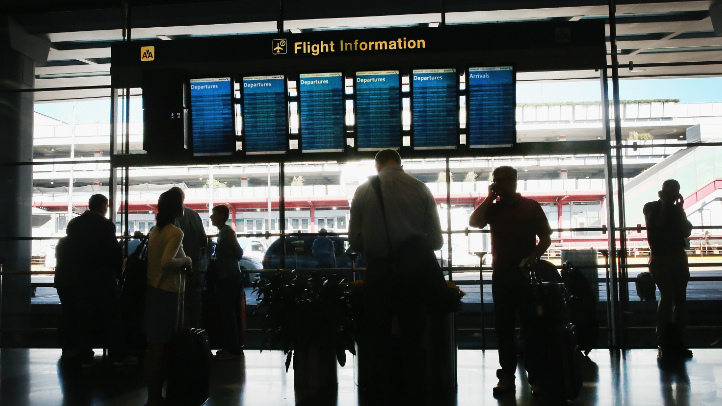The Cook County Board on Thursday voted to share the addresses of COVID-19 patients with suburban first responders in an effort supporters say will allow police officers and firefighters to protect themselves against the coronavirus, but opponents contend raises major concerns about privacy.
The resolution passed on a 9-7 vote with one voting present, according to Commissioner Scott Britton, who introduced the measure. The resolution "directs the Cook County Department of Public Health to temporarily share the address information of confirmed COVID-19 positive patients received from the Illinois Department of Public Health with applicable municipal first responders."
That information - only addresses, not including names - will be shared with suburban police and fire departments on a daily basis, the resolution states. It only applies to suburban municipalities within Cook County, not including Chicago, which is under the jurisdiction of its own separate health department.
Britton said he introduced the measure after multiple suburban police and fire chiefs contacted him with concerns about the limitations on the amount of personal protective equipment their departments had.
"As a practical matter, we simply don't have the equipment at our suburban police and fire departments to suit up for every call, throw it away and suit up again," Britton said. "It's just not practical."
Britton said he received some opposition from privacy and civil rights groups concerned about the implications of the measure. Chicago Mayor Lori Lightfoot was among those who expressed her displeasure with the move, saying that to her "great astonishment and disappointment," the commissioners who approved the measure "voted to capitulate to ignorance and bigotry."
"This allows local law enforcement to maintain databases of those impacted by this horrible virus, under the cynical guise of public safety," Lightfoot tweeted Thursday night. "We will never allow this to become law in Chicago, just as we will never allow people to be stigmatized and put at risk for being denied services or seeking assistance and support. This is a terrible decision. The people responsible should be ashamed and the rest of us outraged."
Local
Britton maintained that in introducing the resolution, he sought to balance privacy and civil rights with the effort to protect police officers and firefighters.
"If this wasn't a pandemic, the likes of which obviously we've never seen before, I never would have considered such a measure," Britton said. "But as a temporary thing, I thought it was necessary to help our first responders."
The resolution cites guidance from the U.S. Department of Health and Human Services as well as the offices of the Illinois Attorney General and the Cook County State's Attorney concluding that information like home addresses can legally be disclosed without violating the Health Insurance Portability and Accountability Act that protects patient privacy.
The resolution will be in effect for a period of 60 days, though it can be brought before the Board of Commissioners again to be extended should the need arise.
"My hope is after two months we're not going to need this," Britton said. "I'm not inclined to continue this after the next 60 days."
The Cook County Department of Public Health will roll the initiative out using "memorandums of understanding" with each agency receiving the information, laying out the usage of the addresses as well as the agencies' agreement to abide by privacy requirements and restraints. Britton said he was waiting on the CCDPH to share guidance on the timeframe of when the measure may take effect.
After the pandemic has subsided, the resolution states that all addresses and information will no longer be shared, and agencies will be required to purge the information that was disclosed.



